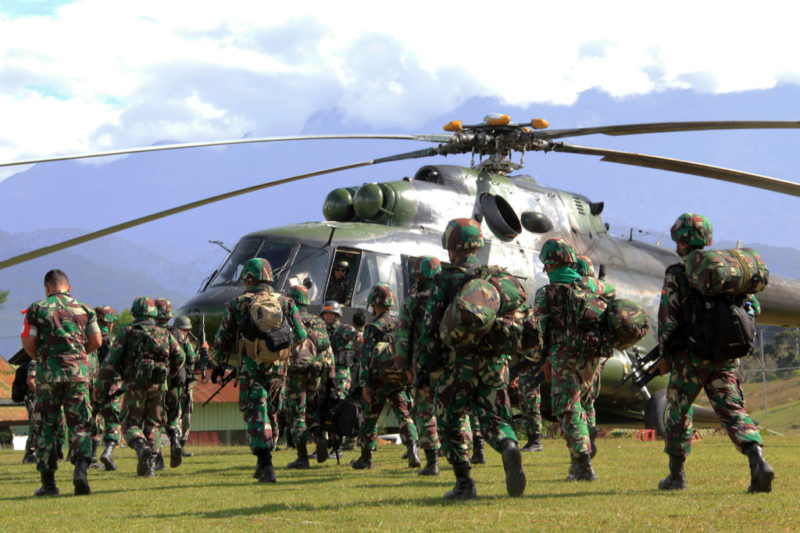West Papuan refugees shot dead by Indonesian military
July 22, 2020
Originally published in the Jakarta Post
Two men, Elias Karungu and Selu Karungu, from the conflict-prone Nduga regency in West Papua, were fatally shot by Indonesian Military (TNI) personnel on Saturday. Locals claimed the two were displaced civilians, while the Indonesian Military claimed the two were members of an armed group.
The father and son were killed when returning to Keneyam district, the capital of the regency, after hiding in forests for more than a year to avoid conflicts between the TNI and an armed group linked to the Free Papua Movement (OPM), a witness who requested anonymity for security reasons claimed.
The witness said that Elias and Selu made the trip with dozens of other displaced locals from Paro and Yengelo districts who were also seeking refuge in the forests.
“The son, Selu, walked ahead of the group and was stopped and interrogated by TNI personnel at a post near Keneyam river. He was also beaten during the interrogation,” the witness told The Jakarta Post on Monday.
He said at the time of the interrogation, Selu was carrying an axe. “He used the axe to cut firewood or to make emergency bridges to cross rivers during the journey.”
Upon hearing Selu’s arrest, Elias went to the military post to pick up his son.
“Not long after I and other displaced people resumed our journey to Keneyam, we heard gunshots,” the witness said. “We knew that Elias and Selu had been shot to death after arriving at the district.”
The Indonesian Military have maintained a strong presence in Nduga regency since December 2018, following the killing of more than 30 workers of state-owned company Istaka Karya in the regency by West Papuan freedom fighters .

The construction workers were assigned to build a 275-kilometer section of road to connect Wamena and Mamugu as part of President Jokowi’s flagship trans-Papua road project.
The killings led to a protracted security crisis in Nduga, forcing civilians to seek refuge in the neighboring regency of Wamena.
Residents from Paro, Yengalo and Yal districts who had difficult access to neighboring regencies opted to hide in forests in the wake of the conflicts. However, after illness and starvation plagued their hideout they decided to return to Keneyam.
As many as 139 refugees had died from starvation and illness caused by poor living conditions in the shelters, as reported by the Nduga Solidarity Civil Society Coalition in July last year. The government vehemently rejected the figure and claimed that only 53 displaced people had died.
The death of Elias and Selu sparked outrage among locals who staged a rally on Sunday near Keneyam airport.
“We did not go to the church on Sunday. We took to the street demanding the military hand over Elias and Selu’s bodies,” a local, who also requested anonymity for security reasons, said.
After the military handed over the bodies, Elias and Selu were buried in a cemetery where Hendrik Lokbere was laid to rest. Hendrik was a close aide of Nduga deputy regent Wentius Nimiangge who was shot dead by an unidentified perpetrator on a road in Kenyam district in December 2019.